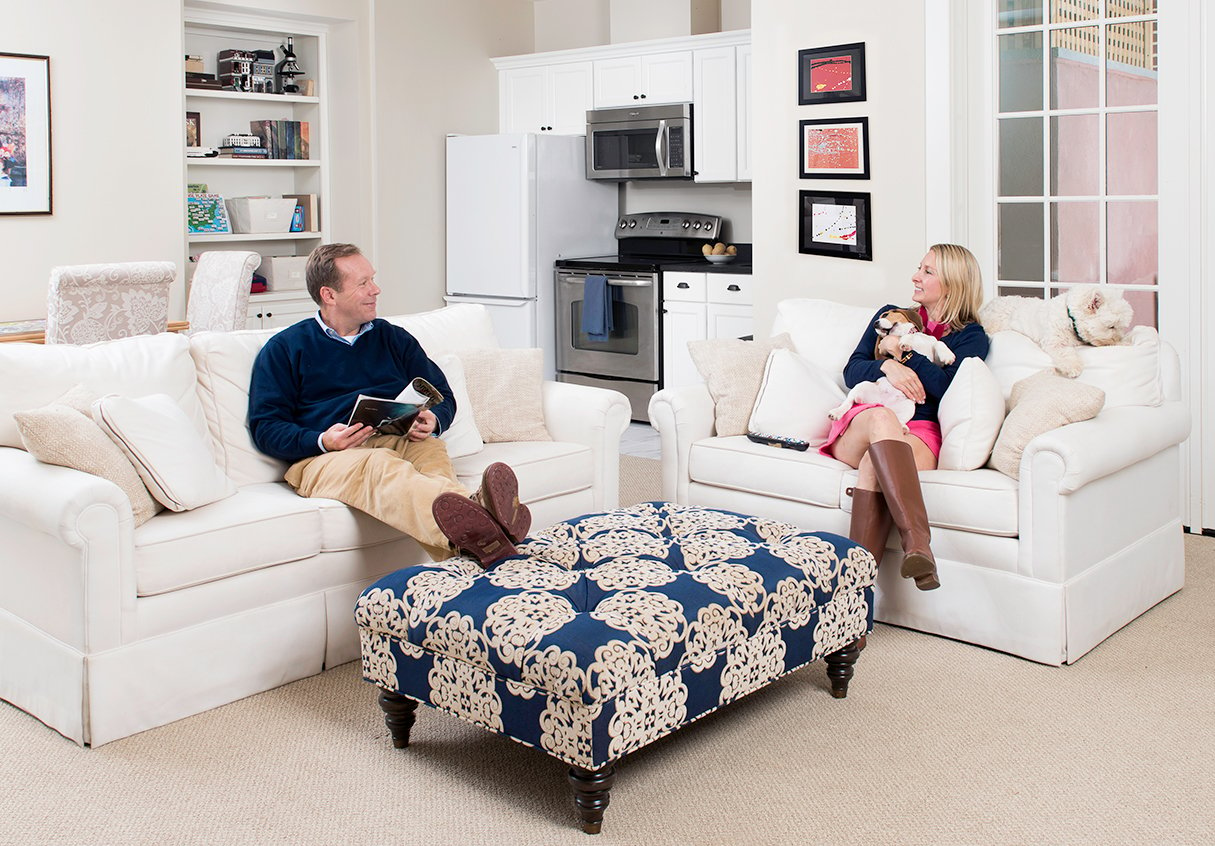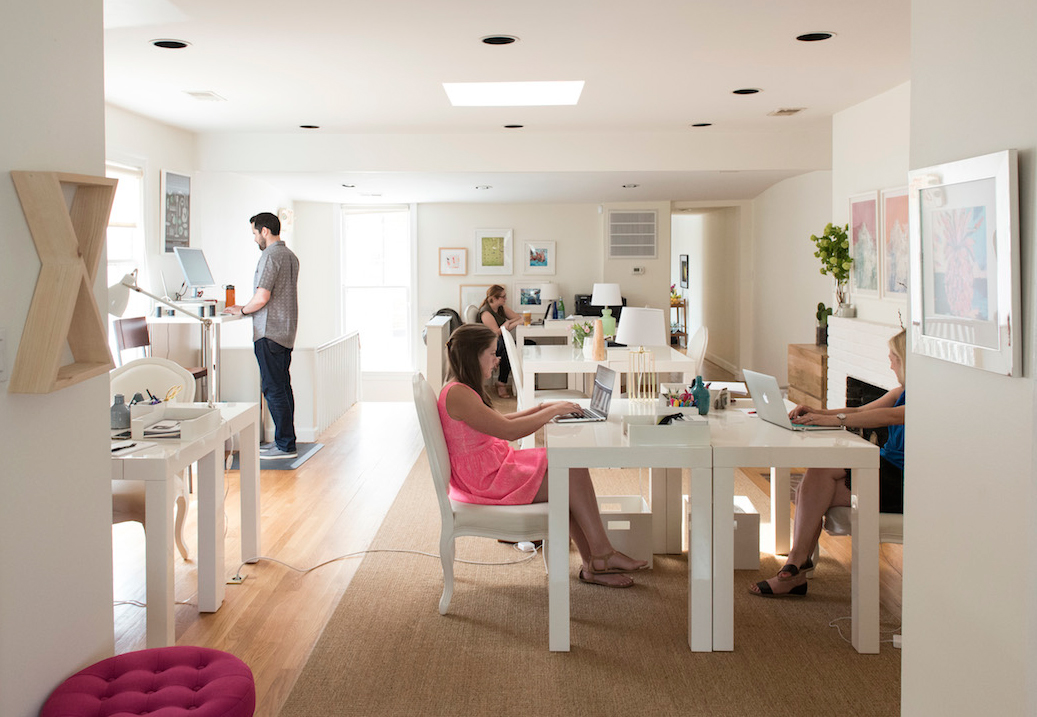George Mason–known for its cutting-edge program in senior-housing administration–has taken steps to become the first university in the Washington area to host its own retirement community.
But those retiring in Washington can still find ways to access university amenities now. George Mason, American University, and the University of Maryland have partnered with the Bernard Osher Foundation to offer classes to people age 50 and older. The San Francisco-based foundation, which provides scholarship funding to colleges and universities, began in 2001 to offer grants earmarked for adult learning. Today Osher Lifelong Learning Institutes (OLLIs) can be found on more than 115 campuses across the country.
Though each OLLI is different, they all offer their members a noncredit educational program as well as access to university perks. “This fall, we’re offering 70 classes taught by former academics, World Bank economists, lawyers, university professors, and more,” says Anne Wallace, executive director of OLLI at American University, which conducts most of its programming in a Baptist church just off campus.
In the spring, OLLI at AU’s catalog includes “The Arab-Israeli Conflict 1917-1955: Differing Perspectives” and “20th-Century Irish Drama.” Program participants also have access to the university’s library and can use the fitness center at a discounted rate.
Some of OLLI at AU’s students come from Fox Hill Club & Residences, a retirement community in Bethesda that provides transportation to and from campus.
“We’ve seen an increase in demand for educational programs,” says Elizabeth Donohoe, Fox Hill’s director of lifestyle and leisure, who gets ideas for new activities from a 19-member committee of residents. Donohoe says the community is considering a partnership with either Montgomery College or the University of Maryland: “We have a 250-seat performing-arts center. We’d love to use it for classes that our residents can audit without having to leave our community.”
That’s what happened at Central Parke at Victoria Falls, an adult community in Laurel. When the University of Maryland’s OLLI program started to outgrow its space on the university’s campus, associate director Sharon Simson–a Victoria Falls resident–knew her community’s large clubhouse would be an ideal venue. Today about a quarter of the program’s offerings are held at Victoria Falls.
“Over the six years that I have been at Victoria Falls, we have had seminars and discussions on almost every conceivable subject,” says participant Mattie Glanville Clarke, 74. “A session may center around presidential elections past and current, the civil-rights movement, the national debt, or the Arab Spring.”
Victoria Falls resident Ruth Jackson, 69, who used to host WJLA’s Good Morning Washington, has attended OLLI classes once a week for the past four years. “Because of my television background, I was initially drawn to a film class, but now I am taking a course on events that have sent shock waves through the United States since the 1940s,” says Jackson. “It’s nice to have the opportunity to think and talk with such a diverse group of people.”
Jackson and other participants in OLLI at the University of Maryland also receive discounts on tickets to performances at the university’s Clarice Smith Performing Arts Center.
Ingleside at King Farm, a retirement community in Rockville, has partnered with a similar noncredit program at Montgomery College called the Lifelong Learning Institute (not affiliated with Osher). The program is offering more than 40 classes this spring to Montgomery County residents age 50 and older. While many of the classes are taught on the college’s three campuses, program director Ann Evans was eager to bring some of their offerings to Ingleside.
“Although many of our participants are mobile, not everyone can get here,” says Evans. “We wanted to expand our reach, as we know many seniors are looking for ways to stay mentally active.” Since Ingleside began offering classes in 2010, residents have been able to take courses in social media, anthropology, and poetry.
Both of Goodwin House’s communities are within two miles of Northern Virginia Community College’s Alexandria campus. “We’ve done several lecture series with their Lifelong Learning Institute, including courses on art history and foreign films,” says Dee Pekruhn, who estimates that about a third of Goodwin House’s 900 residents take advantage of continuing education.
In 2001, Goodwin House was the site for a George Washington University study that investigated the health benefits of cultural programs for aging adults. As part of the study, the late geriatric psychiatrist Gene Cohen looked at a group of Goodwin residents involved in a weekly chorale program offered by the Levine School of Music. In his results, Dr. Cohen noted that those involved in ongoing cultural programs reported “better health, fewer doctor visits, and less medication usage” as well as improved mental health and an overall increase in activity.
Resident Richard Graham, who observed the study, says he wasn’t surprised by the results: “He proved what we knew to be self-evident–that stimulation does wonders for the mind and one’s overall well-being.”
Anne Wallace of OLLI at American University agrees: “The research on the aging brain says to keep it moving. And participating in these classes affords people the chance to do things they couldn’t do before. We have an economist who has found a new love of Jane Austen and a nuclear physicist who is now hooked on Gilbert and Sullivan. What could be healthier than that?”
This article appears in the March 2012 issue of The Washingtonian.
















